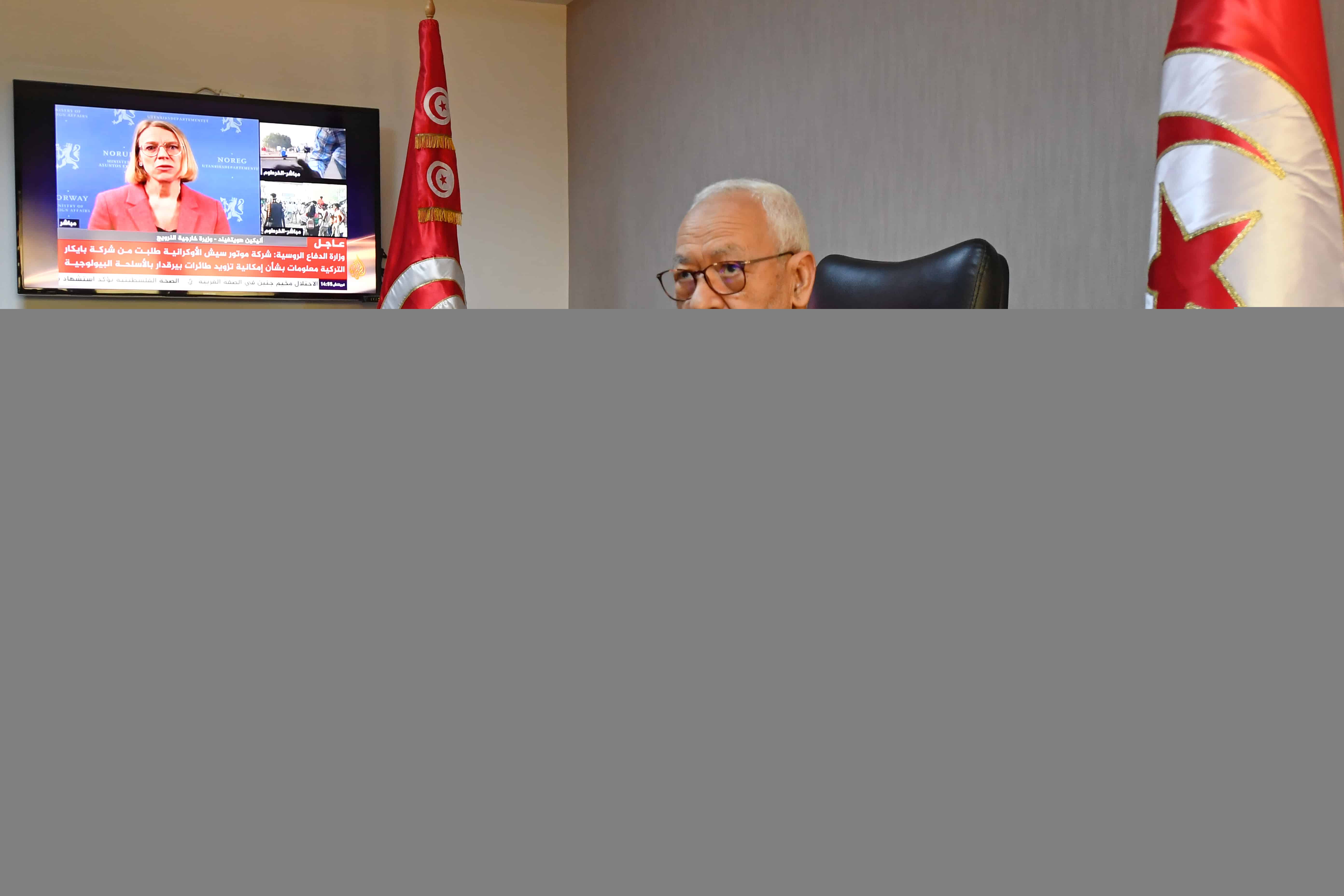Tunisia has summoned for questioning the speaker of the dissolved parliament for “conspiracy against state security” after lawmakers met online in the North African nation, a spokesman said Friday.
Rached Ghannouchi, who also heads the Islamist-inspired Ennahdha party, received a summons on Thursday “to question him about the holding of a plenary meeting”, party spokesman Imed Khemiri said.
Ghannouchi, 81, was accused of “having plotted against state security, which is a dangerous precedent”, said Khemiri, who was also summoned for the same reasons.
On Thursday, Ghannouchi said at least 30 parliamentarians had been summoned for questioning by anti-terrorism police.
President Kais Saied dissolved parliament on Wednesday, dealing another blow to the political system in place since the North African country’s 2011 revolt which sparked the Arab Spring.
It came eight months after he sacked the government, froze parliament and seized sweeping powers, later moving to rule by decree in moves opponents have dubbed a “coup”.
The president’s announcement on Wednesday evening came hours after parliamentarians held a plenary session online — their first since Saied’s power grab — and voted through a bill against his “exceptional measures”.
Ghannouchi subsequently rejected Saied’s dissolution of parliament.
Many Tunisians initially welcomed Saied’s moves against political parties often seen as self-serving and corrupt.
Many blame Ghannouchi’s party Ennahdha — which has dominated Tunisia’s post-revolution politics — for the political stalemate and economic problems faced over the past decade.
But Saied’s moves have prompted accusations that he is taking Tunisia back towards autocracy.
Saied, a former law professor elected in 2019 amid public anger against the political class, has given himself powers to rule and legislate by decree, as well as seizing control over the judiciary.
The parliament building in Tunis has remained closed off and guarded by security forces for the past eight months.








